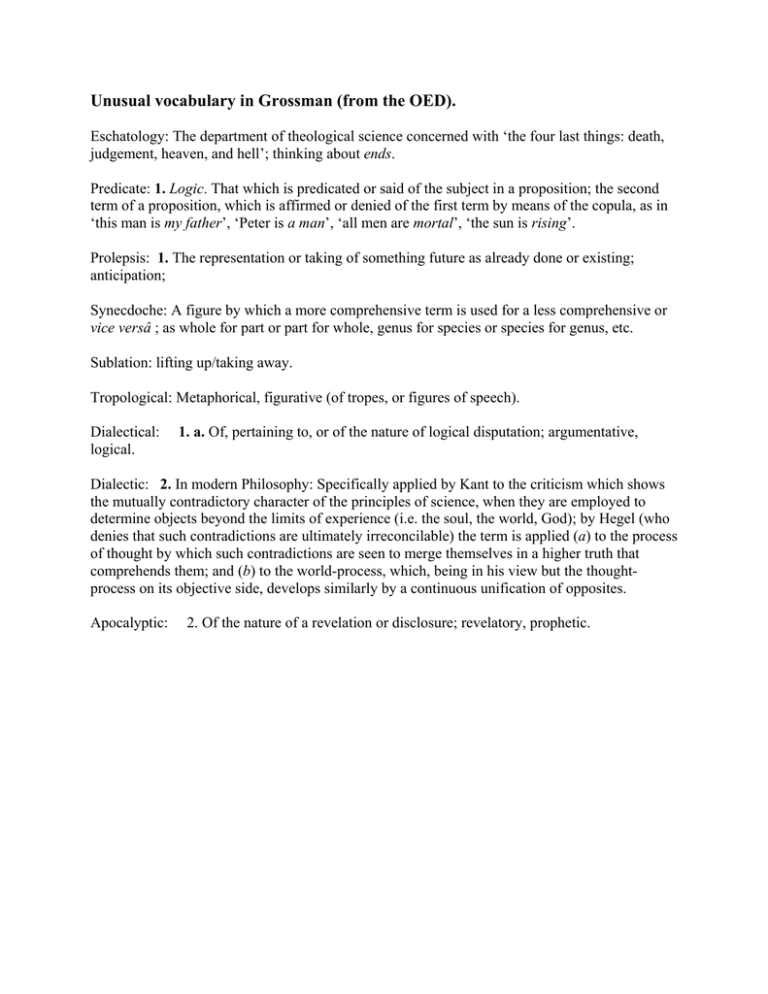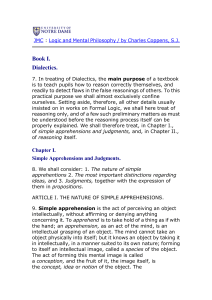Unusual vocabulary in Grossman (from the OED).
advertisement

Unusual vocabulary in Grossman (from the OED). Eschatology: The department of theological science concerned with ‘the four last things: death, judgement, heaven, and hell’; thinking about ends. Predicate: 1. Logic. That which is predicated or said of the subject in a proposition; the second term of a proposition, which is affirmed or denied of the first term by means of the copula, as in ‘this man is my father’, ‘Peter is a man’, ‘all men are mortal’, ‘the sun is rising’. Prolepsis: 1. The representation or taking of something future as already done or existing; anticipation; Synecdoche: A figure by which a more comprehensive term is used for a less comprehensive or vice versâ ; as whole for part or part for whole, genus for species or species for genus, etc. Sublation: lifting up/taking away. Tropological: Metaphorical, figurative (of tropes, or figures of speech). Dialectical: logical. 1. a. Of, pertaining to, or of the nature of logical disputation; argumentative, Dialectic: 2. In modern Philosophy: Specifically applied by Kant to the criticism which shows the mutually contradictory character of the principles of science, when they are employed to determine objects beyond the limits of experience (i.e. the soul, the world, God); by Hegel (who denies that such contradictions are ultimately irreconcilable) the term is applied (a) to the process of thought by which such contradictions are seen to merge themselves in a higher truth that comprehends them; and (b) to the world-process, which, being in his view but the thoughtprocess on its objective side, develops similarly by a continuous unification of opposites. Apocalyptic: 2. Of the nature of a revelation or disclosure; revelatory, prophetic. MIT OpenCourseWare http://ocw.mit.edu 21L.705 Major Authors: Rewriting Genesis: "Paradise Lost" and Twentieth-Century Fantasy Spring 2009 For information about citing these materials or our Terms of Use, visit: http://ocw.mit.edu/terms.



